Since our inception in 2011, Spark Health Africa has worked with over 1,600 healthcare professionals across seven countries as part of our Transformative Leadership and Culture Change (TLCC) programs. Our key aim has been to engender resilience within the workforce by changing their team-based work culture. This article describes the team transformation process that forms the foundation for a resilient workforce.
A resilient healthcare system is critical to achieving Universal Health Coverage
Ensuring healthy lives and promoting well-being for all ages is the 3rd Sustainable Development Goal, which countries are striving towards worldwide. A key objective to achieve this goal is Universal Health Coverage (UHC), which means that all individuals and communities receive the health services they need without suffering financial hardship.
Multiple barriers to achieving UHC characterize the public sector healthcare landscape across Sub-Saharan Africa. Demand for services is high due to an enormous disease burden driven by deeply entrenched social and economic determinants of health. However, the supply of services struggles to keep up due to resource constraints and mismanagement, leading to chronic shortages of human resources and medical supplies. Healthcare systems are also subject to various disruptions capable of derailing progress, such as natural disasters, epidemics, and other acute shocks.
African healthcare systems need to be resilient to maintain good health in our communities despite these challenges.
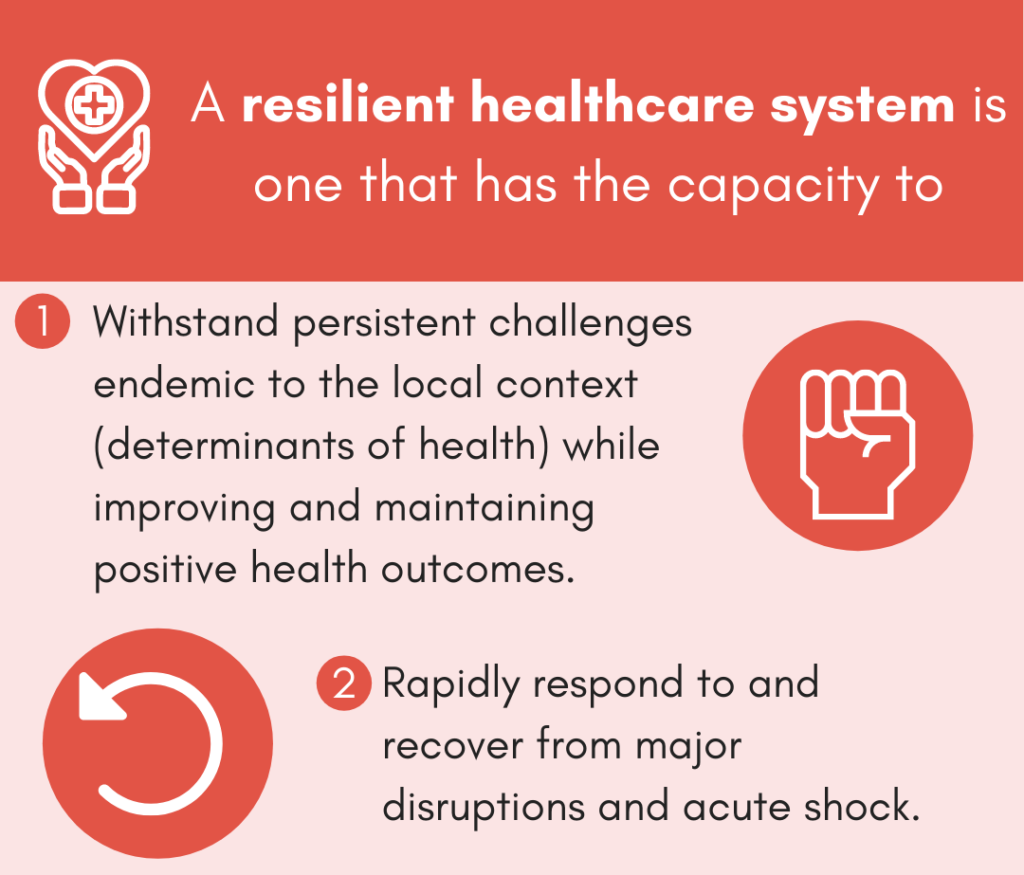
To engender resilience in the healthcare system, we must focus on the people who drive the system – health care workers. After all, people create the system, making it a direct product of their work culture. Once you build a resilient workforce, resilience in the overall healthcare system will follow.
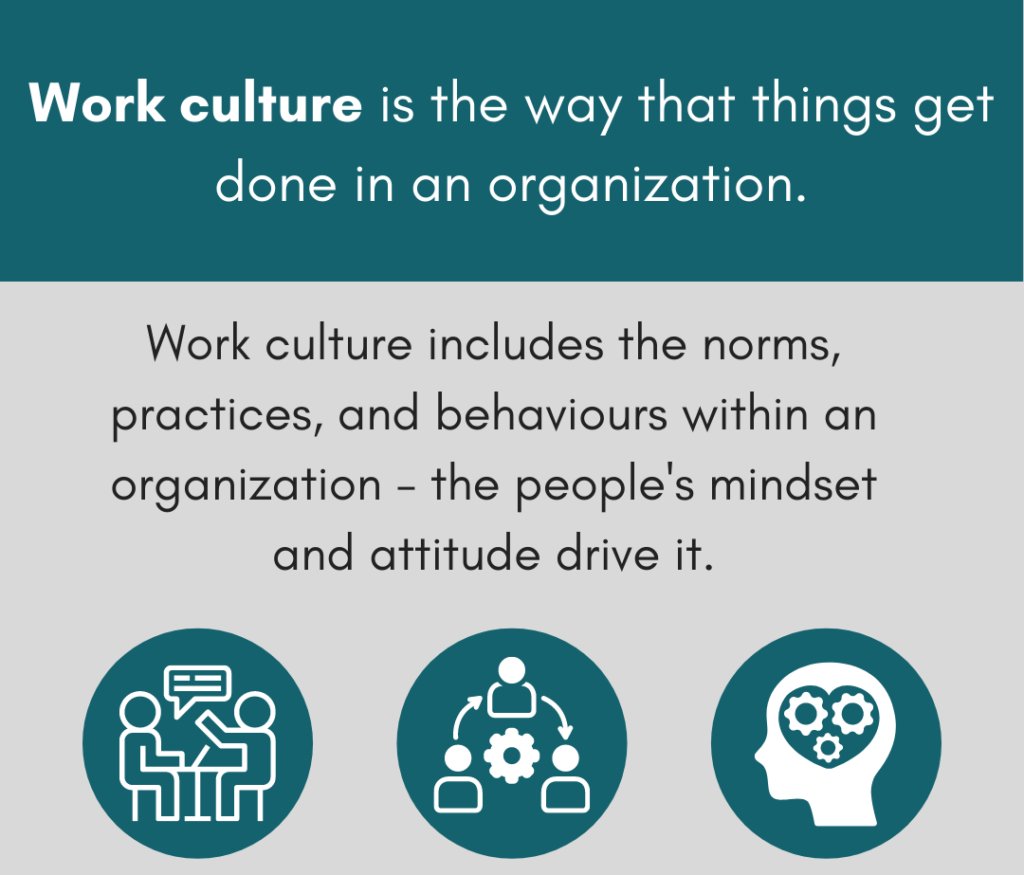
The foundation of a resilient workforce is effective teamwork
So how do we build a resilient workforce? The first step is to understand the shortfalls that prevent a workforce from reaching its full potential. The frequent barrier we come across is that healthcare workers function as workgroups, not as teams.
Workgroups may be part of the same organization but don’t understand that they have a shared goal or don’t know that they need each other. On the other hand, teams have a clear common agenda and are deliberate about collaborating to achieve their goal.
Teams have a healthier and more effective work culture.
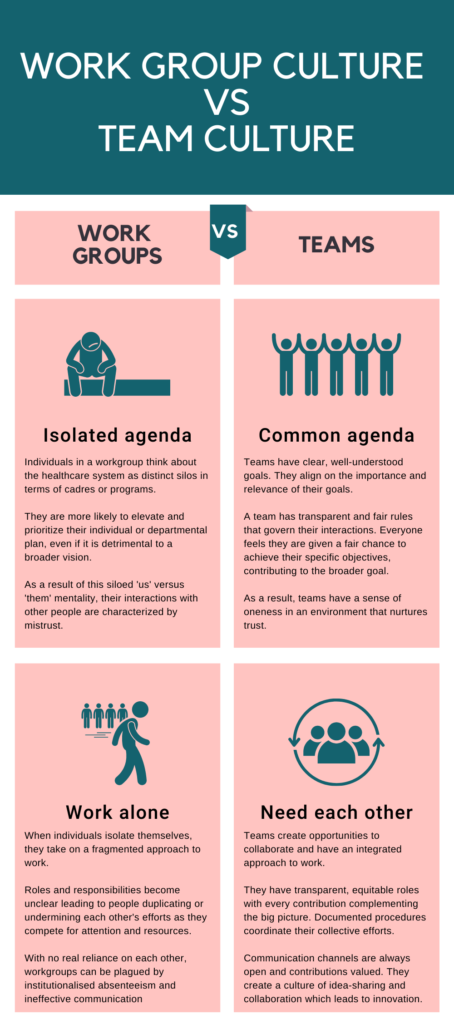
The work culture of effective teams makes them a resilient workforce
Teams can do more with the same time and resources as workgroups. As a unified front with a deep sense of oneness, they benefit from the synergistic effect of collaboration, i.e., their combined effort is greater than the sum of their contributions. This critical attribute makes them more resilient because they can stretch limited resources and devise effective interventions, even in challenging environments. They are also better placed to react quickly and effectively when disruptions arise.
By drawing from the collective knowledge across cadres and departments, teams have greater awareness. Their combined experiences keep them informed about the health system capacity, risks inherent to the system, and the population’s characteristics. This institutional knowledge is sustained and built on through effective communication channels.
By effectively coordinating efforts, teams are self-regulating. Clearly defined roles allow individuals to work on their core functions, knowing that they can rely on complementary support from the rest of the team. With less pressure and more focus, teammates can better identify and isolate health threats that arise and address them effectively, leveraging capacity from within their team.
Teams can use their common goal to drive an integrated approach to healthcare. Once a team adopts an attractive and relevant plan, they can garner the support from their community, private sector actors, and other industry leaders. Bringing people together around a common agenda improves referral systems for a multi-sectoral approach to better tackle the diverse social and economic determinants of health. It also allows for genuine trust between stakeholders because they are all working towards the same plan.
Open communication and a culture of collaborative idea sharing make teams more agile to adapt to changes in the healthcare sector.As new challenges emerge, teams can quickly co-create innovative solutions drawing from their collective expertise. They can also rapidly shift resources to implement interventions because they are not in competition for resources. Teams can also continue to track progress and performance to improve the intervention using well-established communication channels iteratively.
All of these advantages mean that teams can adopt a holistic approach to responding to health challenges. Teams embrace the diversity of skills and experiences of their members and external stakeholders to address multiple community needs instead of a program-focused approach.
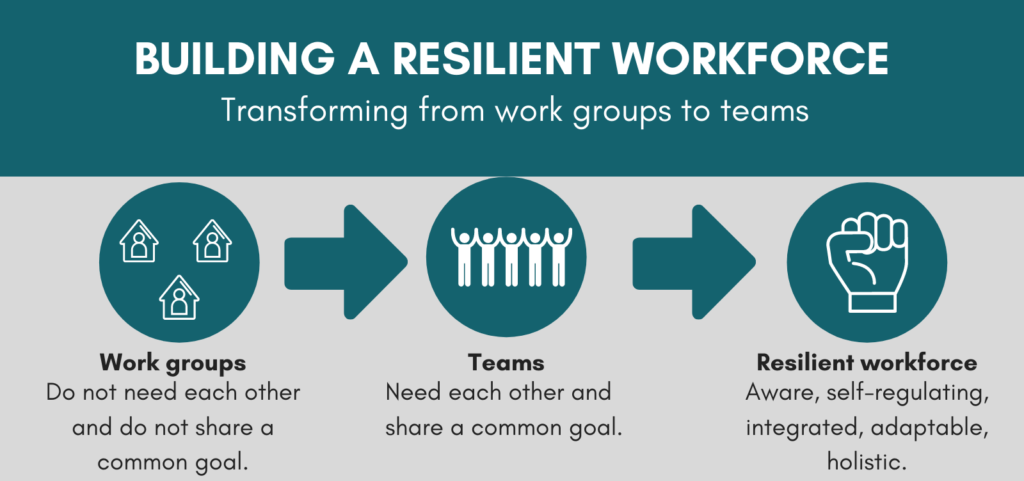
Spark Health Africa’s approach to team transformation
Our work as Spark Health Africa catalyzes the transformation from workgroups to effective teams with a strong work culture. We collaborate with African Ministries of Health for government-led Transformative Leadership and Culture Change initiatives.
Our main target is district health management teams who we support to integrate additional managers and frontline workers to join the change agenda and spread it across the district. We also work with national and provincial leadership to support the teams on their journey, as well as implementing partners selected by the Ministry of Health.
Mindset drives work culture, and so our first step is to ignite a new way of thinking among healthcare workers so that they can see their work differently. We do this through interactive workshops to introduce teams to transformative leadership and culture change principles. We also equip teams with core management skills during the workshop to have the technical expertise to change their work practices.
After the igniting workshops, we provide sustained mentorship and thought partnership to teams. Through on-the-job mentorship, we help teams to develop management skills into competencies grounded in real-world experience. As part of thought-partnership, we coach teams to embody an effective team’s characteristics to become a resilient workforce.
Building resilience through team transformation is not an event. It is a deliberate and thorough process that teams must tie to their everyday challenges and frustrations. They will identify the transformation process in demonstrable health outcome improvements. The need for sustained work towards transformation is why we dedicated 18 to 24 months to the mentorship and thought-partnership phase. This phase is when change occurs, and teams develop resilience.
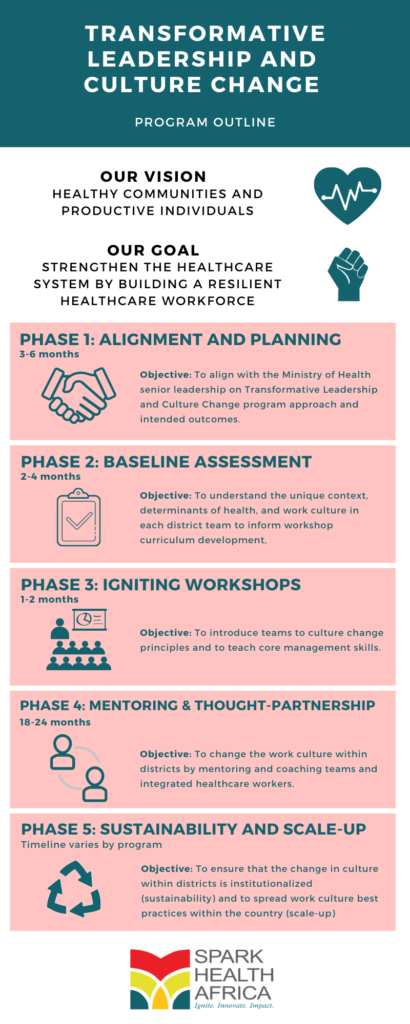

A unique and effective innovation – takes time to change mindsets so that they deliver real impact! Bravo Spark Health Africa